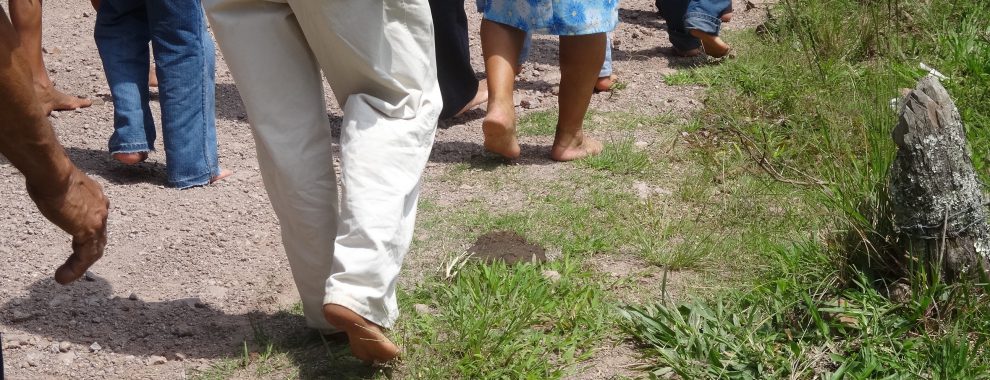Today we celebrate the encounter of two pregnant women and the children in their wombs, a feast that dates back to the Franciscans in 1263.
Mary, pregnant with the Word of God made flesh, goes to meet her elderly cousin Elizabeth, pregnant with John the Baptist. Who knows why Mary went? Perhaps to help her cousin, perhaps to seek the counsel of an older woman, perhaps to have someone to talk to about the strange things happening in her life.
But Mary goes and brings God with her. And so can we carry God wherever we go.
The reading for Vigils today in Benedictine Daily Prayer, has a marvelous reading from Caryll Houselander’s The Reed of God, which makes just this point:
Sometimes it may seem to us that there is no purpose in our lives, that going day after day to this office or that school or factory is nothing else but waste and weariness. But it may be that God has sent us there because, but for us, Christ would not be there. If our being there means that Christ is there, that alone makes it worth while.
When Mary met Elizabeth, John leaped for joy in her womb – both he and his mother recognized the presence of God in Mary.
But, Houselander insists, this is not something that just happened in the past with Mary. It is something that God can do in our lives.
If Christ is growing in us, if we are at peace, recollected, because we know that however insignificant our life seems to be, from it he is forming himself; if we go with eager will, in haste, to whatever our circumstances compel us, because we believe that we are driven more and more to act on the impulse of love. And the answer we shall get from others to those impulses will be an awakening into life, or the leap of joy of the already wakened life within them.
So today, let us go wherever we are called, with joy and with love, carrying Christ within us so that those around us will leap with joy, recognizing that God is with us, God has become flesh among us, and God loves us.














